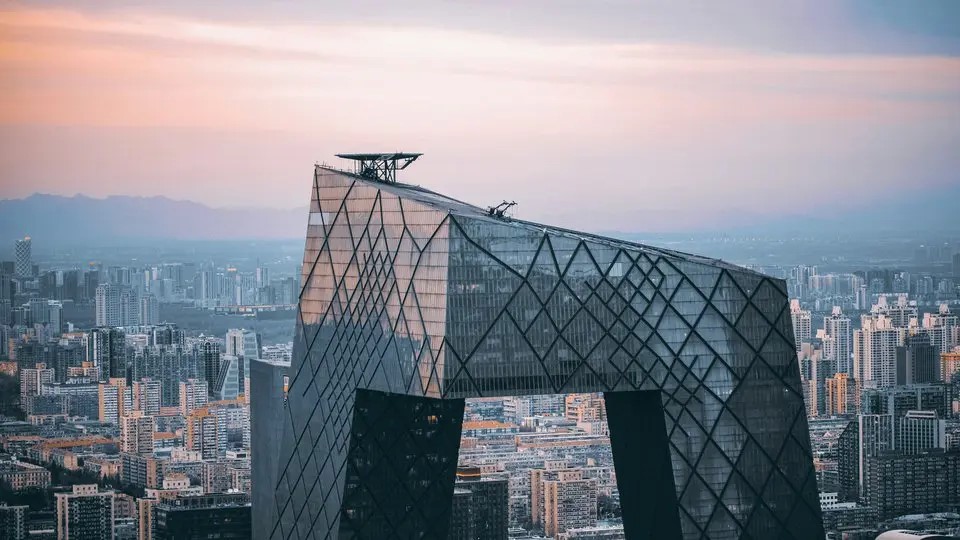Russia: Going from Sprint to Marathon

Over the last decade, collaborations between luxury brands and contemporary artists have gone beyond mere artistic partnerships towards a new kind of luxury branding.
PARIS – Art and fashion have always developed side by side, for fashion, like art, often gives visual expression to the cultural zeitgeist. During the 1920s, Salvador Dalí created dresses for Coco Chanel and Elsa Schiapparelli. In the 1930s, Ferragamo’s shoes commissioned designs for advertisements from Futurist painter Lucio Venna, while Gianni Versace commissioned works from artists such as Alighiero Boetti and Roy Lichtenstein for the launch of his collections. Yves Saint Laurent’s vast art collection, recently auctioned at Christie’s in Paris, testified to his great love of art and revealed the influence of a variety of artists on his own designs.
In the 1980s, relationships between luxury brands and artists were advanced when Alain Dominique Perrin created the Fondation Cartier. In the Fondation Cartier pour l’Art Contemporain, a book marking the foundation’s 20th anniversary, Perrin says he makes “a connection between all the different sorts of arts, and luxury goods are a kind of art. Luxury goods are handicrafts of art, applied art.”
The Fondation Cartier pour l’Art Contemparain building in Paris
Hard hit by the recession, luxury brands in Russia are taking stock of a new reality that suggests deceleration and a more prudent, long-term approach toward development.
Hard hit by the recession, luxury brands in Russia are taking stock of a new reality that suggests deceleration and a more prudent, long-term approach toward development.
MOSCOW – As Muscovites hunker down for another long winter, there will likely be fewer champagne and vodka fuelled store openings to liven up the cold, dreary nights than in recent memory. There are also fewer fancy boutiques catering to the city’s elite consumers and, indeed, fewer elite consumers altogether. Like in most world capitals, the recession has taken a heavy toll here.
The Russian economy, however, has fallen more sharply than those of its emerging market peers. The global financial crisis and the resulting drop in oil prices have had disastrous consequences for the domestic economy. Based on figures released by Russia’s economy minister, GDP reportedly shrank 9.8% in the first quarter of 2009 and manufacturing fell by 23.5% in the same period, the largest contraction in fifteen years, according to Bloomberg. In a separate report, Bloomberg calculated that the 25 richest Russians lost a combined $230 billion in 2008. To put it in starker terms, it has been estimated that Moscow, which once boasted 74 billionaires, is now left with a mere 27 of them. The country’s millionaires have suffered a similar fate — both in terms of shrinking individual wealth and diminishing total numbers. So where does this leave the once red-hot Russian luxury market?
Russia’s car market, until recently an emblem of the country’s consumer boom, only in 2008 had surpassed Germany’s to become Europe’s largest, but according to reports in the Wall Street Journal has now been decimated by half. While luxury car sales (down 36% in the first half of 2009) have fared better than the overall car market (down 50% in the same period), Russian imports of Bentley, Ferrari, Rolls-Royce and Lamborghini have still declined by 60%. Waiting lists for the most popular brands are a thing of the past and even luxury carmakers like Maybach are offering never-before-seen financing and trade-in deals as enticements.
But not all that currently ails Russia’s luxury market can be blamed on the macro-economy. The high-profile closures of the Alexander McQueen and Stella McCartney boutiques in Moscow by their Russian partner Arts Group at the start of the downturn sent a chill across an industry already on edge. The timing of the closings made it tempting to blame the global crisis but the surrounding circumstances are far more nuanced than this, underscoring the challenges for Western luxury brands seeking to expand in this market.

The Petrovsky passage in Moscow
The global crisis and its repercussions for Russia’s domestic economy may indeed have played an indirect part; but sealing the fate of these boutiques were more likely a combination of miscalculations and unrealistic expectations. Olga Mikhailovskaya, former fashion director at Elle Russia who now writes for Kommersant newspaper makes this point: “Our retailers don’t understand that it takes time for a monobrand boutique to become profitable. Like most Russians, they expect to make a large profit almost immediately and they’re surprised when that doesn’t happen right away.”
Buoyed by the industry’s historic highs of the last fifteen years, even some of luxury’s seasoned players seemed to have lost sight of the longer road. Arts Group, perhaps not thoroughly accustomed to the peculiarities of luxury brand management during a downturn, may have overestimated short-term profit forecasts and underestimated the long-term commitment required to build a strong brand profile domestically. As a result, they succumbed to the temptation to cut and run a mere eighteen months after opening. Luxury consultant Robert Burke of Robert Burke Associates agrees: “Russians don’t have a long history of managing luxury brands yet and as a result, they reacted very abruptly to the downturn.”
Mikhailovskaya also cites what she politely refers to as “a certain lack of professionalism” within the Russian luxury industry: “McQueen could have been successfully marketed in Russia provided the right purchasing decisions had been made. This is unfortunately a recurring problem with Russian retailers. We just don’t have enough qualified professional buyers.” With regards to the Stella McCartney boutique, Mikhailovskaya believes that pricing strategy and brand positioning may have contributed to the problem: “I think that a big mistake was made with Stella McCartney. Russians don’t associate this brand with luxury at all but the retail prices were comparable to those of top luxury brands.”
Spokespeople for Arts Group, Alexander McQueen and Gucci Group did not respond to a request for comment.
For Robert Burke, these events highlight the importance for Western luxury brands of finding the right partner, particularly in a market like Russia: “Unless you are Louis Vuitton or Chanel, you need the right local partner. You need an organization that not only has in-depth knowledge of the local market but one that has the proper financing structure in place and the right long-term objectives. Then the other aspects of the business, like well-trained sales staff and qualified buyers, will fall into place.”
Of course, even before the downturn, patterns of luxury consumption had begun to change in Russia, much as they had in more mature markets throughout the West. Not only are affluent Russians turning away from the ostentation they initially favoured, they’re also discovering the virtues of mixing high-end pieces with more modest purchases — a shift probably accelerated but not caused by the downturn. “In the past year people have come to their senses”, explains Ms. Mikhailovskaya. “They’ve realized that it’s only worth paying big money for something that is truly well-made and unique and that a €30 T-shirt can be just as good as a €300 T-shirt.”
The recession does have its share of silver linings for the Russian luxury industry. Chanel and Louis Vuitton, for instance, continue to seek opportunities beyond Moscow — most notably in the city of Yekaterinburg where both have opened new stores in the last year despite market conditions. Louis Vuitton reportedly also plans to open new boutiques in the Black Sea resort town of Sochi and in the southern cities of Samara and Rostov-on-Don, thanks to sustained demand for its accessories. This suggests untapped potential in Russia’s second and third-tier cities that has largely been ignored, except by a handful of luxury brands.

The Louis Vuitton boutique on Stolechnikov Pereoulok, Moscow
As Sergey Voronov, director of marketing and development at art publisher ArtMedia Group rightly points out: “This market is so huge and to date, luxury brands have concentrated their efforts in only a few main cities. Once the global economy recovers, the potential for growth here over the next five to ten years is tremendous.” Moreover, as the once bloated Russian real estate prices continue to adjust to the new global and local economic realities, lower retail rent prices (down 30% in 2009, according to Cushman & Wakefield) may make monobrand boutiques more feasible.
The Russian appetite for luxury goods and services should also not be discounted. Spirits were high recently in Moscow’s exclusive shopping district as the local glitterati sipped champagne and mingled with designer Roland Mouret and part-time resident Naomi Campbell during “Fashion’s Night Out” festivities orchestrated by Vogue Russia to encourage consumers to get out and shop. Artyom Polanskiy, founder of Luxury Travel Mart, a leading Russian luxury travel trade show explains: “History has taught Russians to live for the moment, so they’re perhaps less inclined to be frugal than consumers in the West. They will continue to buy luxury items even during hard times.”
Consumers in emerging markets like Eastern Europe and Russia will, according to a June 2009 report by Bain & Company, begin to spend more aggressively once the stock market fully rebounds. The real question then is not whether luxury consumers will shop again but whether they will do so with the same fervour. On this point, Robert Burke remains somewhat sceptical: “Russian consumers will not be in the same position as before the downturn. They will spend again but just as in the West, they will be looking much more closely at price-quality relationships than before.”
It’s also unclear whether Russian consumers are out of the woods just yet. The Russian Central Bank recently issued concerns over Ruble volatility and political tensions with neighbouring Ukraine could heat up once more as that country prepares to hold its presidential election in January. Although politics may not be foremost in the minds of luxury shoppers, they exacerbate the general sense of unease brought about by the recession, doing little to assuage the fears of jittery investors.
As Russian society continues to acclimatise to capitalism, patterns of luxury consumption will continue to evolve. The days when Western luxury brands could swoop into Russia and expect to reap immediate rewards are probably over. Meaningful growth going forward will require clear-eyed strategies with longer-term investment in mind — a marathon, in other words, rather than a sprint.
Helene Le Blanc writes a blog at www.theluxechronicles.com

Consultant
Hélène Le Blanc is a consultant and writer specialised in luxury branding and digital media strategy. After several years of practicing law as a litigation attorney in Canada, she joined Apple as a senior attorney based in Apple’s European headquarters where she advised the marketing teams on a wide range of marketing, communication and digital issues. She left law to pursue a dual passion for luxury and digital media. Since then, she has advised luxury brands on brand building and digital media strategy including content creation across multiple digital, print and social media platforms. Hélène is a frequent conference speaker and lecturer. She has written extensively on luxury for various digital and print publications. She also authors a well-regarded blog entitled The Luxe Chronicles which explores issues pertaining to the changing nature of the luxury industry. It is written from the perspective of a consumer of luxury goods and services, a voice frequently missing from the conversation on luxury. She holds a Bachelor of Arts from McGill University in Montreal as well as degrees in Common Law and Civil Law from McGill Law School. Hélène has lived in New York City, London and is currently based in Paris.


